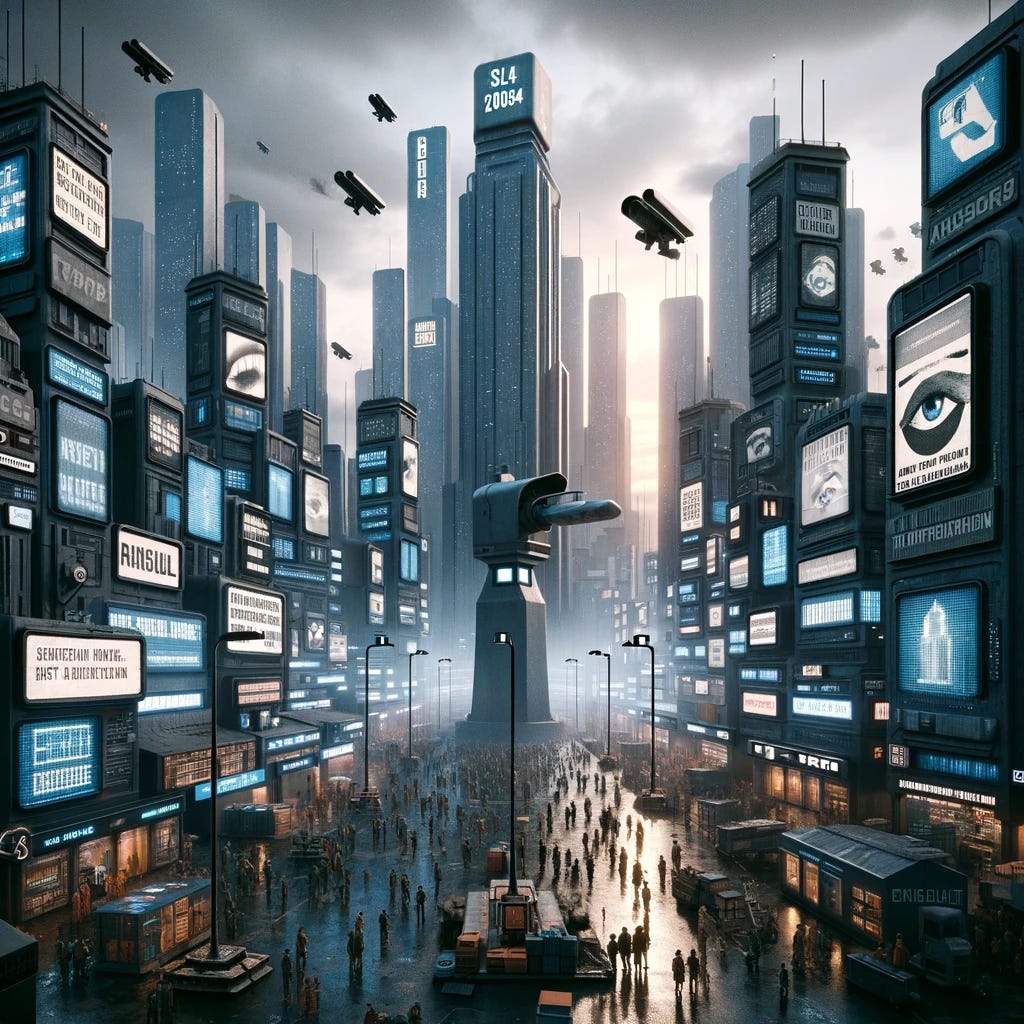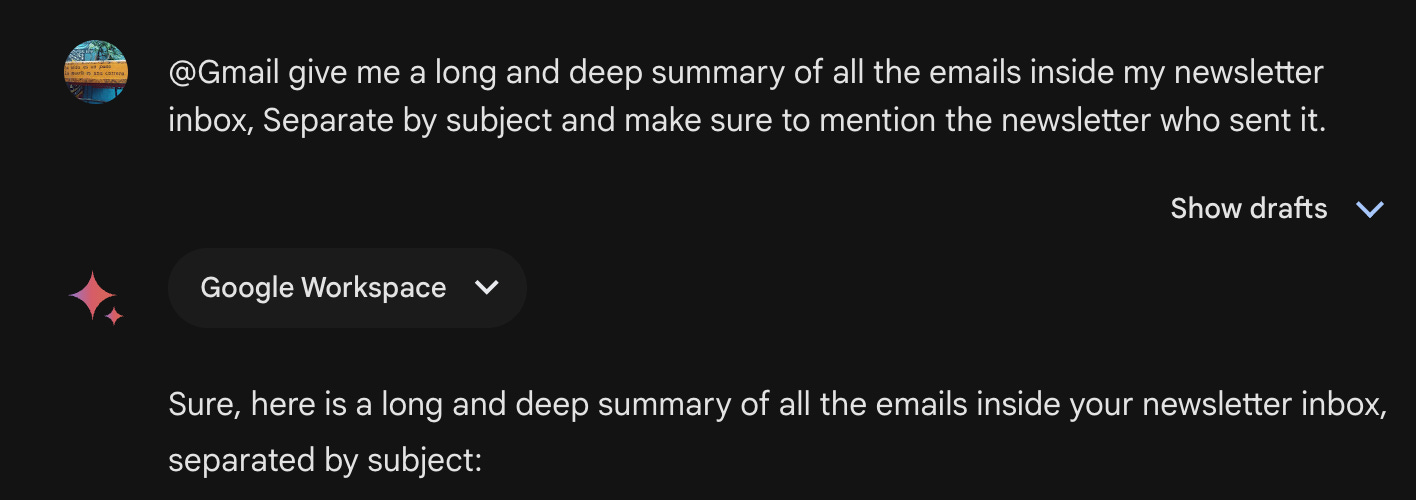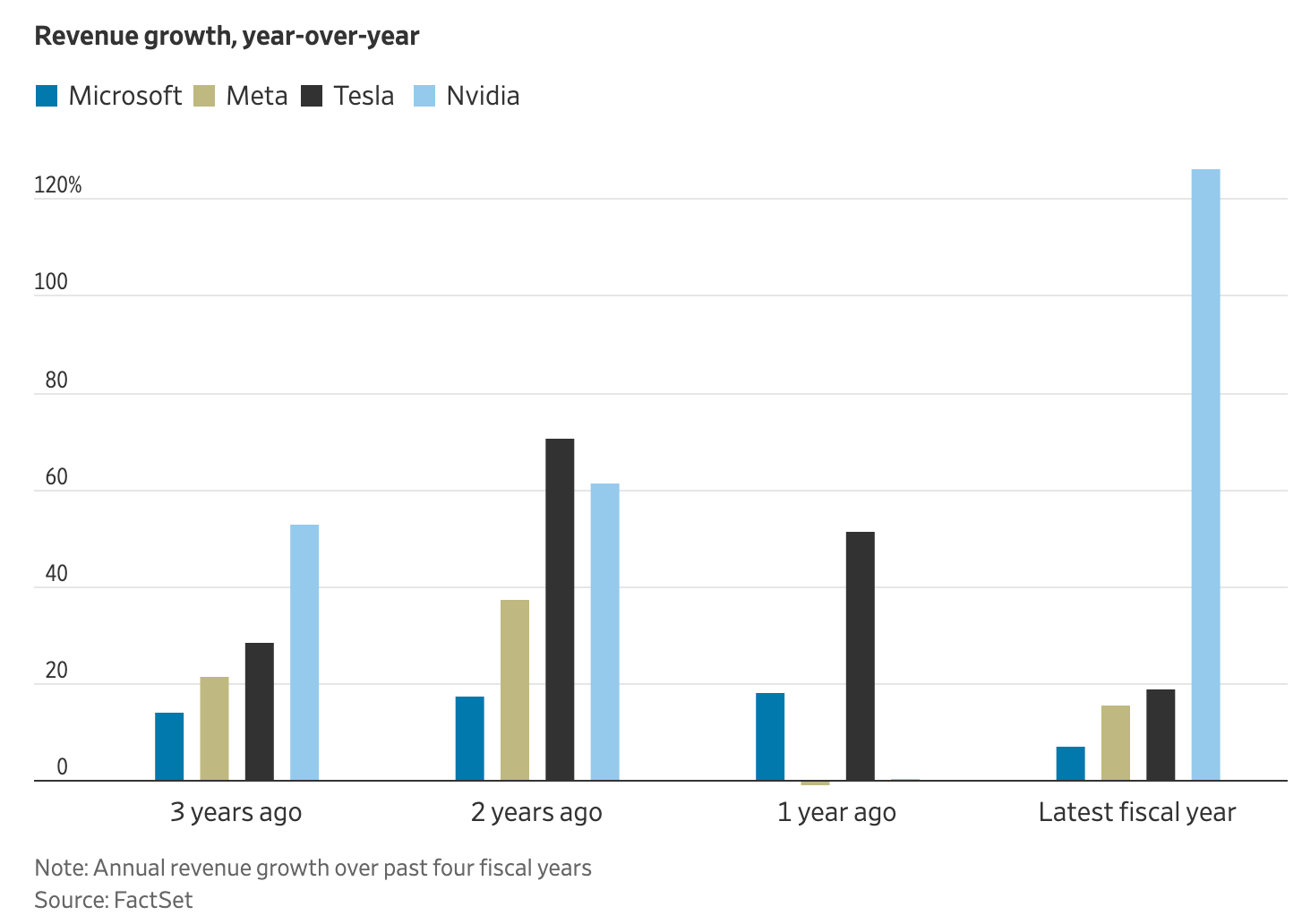- Yaro on AI and Tech Trends
- Posts
- 📖 Where is George Orwell’s 1984 sequel?
📖 Where is George Orwell’s 1984 sequel?
Plus: Nvidia’s Meteoric Rise to the Top and The Case for AI Agents
Hello World 🙏,
It's Friday again. In the ever-evolving world of technology, valuations fluctuate rapidly, and the pace of innovation never slows down. Our goal is to keep you well-informed and equipped with the insights you need to stay ahead of the curve. In this issue, we delve into Nvidia's remarkable ascent, explore the pressing need for a modern successor to the classic novel '1984,' and examine the potential of AI agents. Plus, we'll share tips on how you can begin crafting your AI-driven strategies.
This is what we have today…
Where is George Orwell’s 1984 sequel?
The Case for AI Agents
Nvidia’s Meteoric Rise to the Top
Our Sections:
❓Quiz of the Day
📰 News and Trends
💰 Follow the Money
🧰 AI Tools
❓Quiz of the Day
Who is considered the father of computer science and artificial intelligence?
A) Steve Jobs
B) Alan Turing
C) Bill Gates
D) Geoffrey Hinton
Please give us your answer in the comments below.
The correct answer will be given in the next newsletter - Last Week’s Quiz correct answer: “B”
📰 AI News and Trends
What two years of AI development can tell us about Sora (Vox)
Google pauses Gemini AI chatbot’s image tool after backlash over inaccurate pictures (Engadget)
Stable Diffusion 3.0 debuts new diffusion transformation architecture to reinvent text-to-image gen AI (VentureBeat)
GPT-4 developer tool can hack websites without human help (NS)
🌐 Other Tech news
Instagram’s Uneasy Rise as a News Site, Everyone is a News Influencer (NYT)
WTF, A woman is marrying a Hologram? (Screenshot)
Popular social platform Reddit to sell stock in an unusual IPO. Its data is being sold on time to boost value. (NPR)
Nvidia's Stock Soars, Taking Peers and Partners With It. Value at $2T (Investopedia)
Meet “Flip” - Where everyone’s an influencer and everything’s for sale (TheVerge)
Where is George Orwell’s 1984 sequel?

In envisioning a sequel to George Orwell's 1984, titled 2084, we delve into a future where the ominous predictions of Orwell are not just realities but the foundation of an even more intrusive world. Orwell's 1984 painted a bleak picture of humanity's future, warning of a world where individual freedom is obliterated, and humans become mere cogs in a totalitarian machine, unaware of their subjugation. This vision, once a distant dystopia, mirrors our current trajectory, with technology increasingly invading our private lives.
In the original tale, the concept of privacy still exists, with characters finding solace in the few spaces beyond the reach of the omnipresent telescreens and the privacy of their thoughts. Fast forward to our era, and telescreens have become voluntarily carried devices—smartphones that we consider essential for daily functioning, and yes, it is challenging to be without them or internet access for long periods. These devices have paved the way for even more intimate forms of surveillance and control, such as brain-computer interfaces (BCIs), marking the frontier of a world where our thoughts might no longer be our own. Neuralink just conquered a milestone by allowing a patient to move a mouse with just a thought, but it is concerning as well. Two decades ago, the smartphone was a rarity; today, it's indispensable. With the advent of BCIs, are we inching closer to a future where not adopting BCIs could place one at a significant disadvantage?
2084 could portray a society where brain implants are the norm, allowing cyborgs instantaneous access to knowledge, languages, and sensory experiences, all while facilitating an unprecedented level of thought-sharing and surveillance. In this world, labor is obsolete, replaced by robots powered by renewable energy, nutritional needs are met with a single pill, and health checks are done by a microbot residing inside your body, leaving traditional human experiences as optional rather than necessary. The ultimate question 2084 would pose is: At what point does the integration of technology into our lives and very beings erode our humanity, privacy, and autonomy? Are we, by embracing these advancements, willingly stepping into the dystopian future Orwell feared, where we are monitored and controlled to the extent that we lose sight of what it means to be human? This sequel would not only serve as a continuation of Orwell's cautionary tale but also as a reflection on our current path and the choices we face as a society in the embrace of technology.
Get a FREE 1-on-1 AI Session for you and your team when you refer 2 people. Refer 10 and get a $50 Amazon Card.
The Case for AI Agents
AI agents are poised to revolutionize the way we work by automating routine tasks. Here's a breakdown of what they are, plus some additional insights on building a successful AI agent:
AI agents are computer programs that can sense their environment, make decisions independently, and take action to achieve specific goals. From basic to complex, they often learn and adapt over time, improving their ability to perform tasks without direct human control.
The Most Obvious (and Useful) AI Agent
One of the most accessible and helpful AI agents for most people would be a smart email assistant. Here's why:
Universality: Nearly everyone uses email and struggles with overflowing inboxes and time wasted on mundane tasks.
Task Potential: An AI agent could:
Sort and prioritize emails
Draft basic replies or templates
Schedule meetings based on email conversations
Summarize long email threads
Flag potential spam or phishing attempts
How to Build It
Choose a Focus: Don't try to tackle every email problem at once. A niche focus (like scheduling or summarization) is better initially.
Low-Code/No-Code Tools: Platforms like Zapier or IFTTT let you build simple AI-powered workflows by connecting existing apps. Start here for a basic prototype.
Data is Key: The more quality email data you feed your agent, the smarter it gets. Focus on gathering clean, structured training data that's relevant to the specific tasks you want to automate.
Deployment
I've organized my Gmail by setting up separate inboxes with specific labels for efficient email classification. Then, I use Google Gemini to generate daily summaries of new emails.

While platforms like Zapier offer various customization options, this method provides a straightforward starting point, encouraging further creative solutions.
Additional Considerations
Ethics and Privacy: Handle sensitive email data with the utmost care. Transparency with users is paramount.
Embrace the Human Element: AI agents are assistants, not replacements. Design your agent to work well alongside humans.
Need ONE newsletter to stay on top of everything?
Prompts daily has only the most important AI news, insights, tools and workflows.
The newsletter is known to:
Make you more productive at work
Introduce you to valuable and useful AI tools/workflows
Help you look smarter in front of your friends (seriously!)
It’s also free to sign up!
💰 Follow The Money
$2.5B valuation of China’s Moonshot AI after raising $1B for an LLM focused on long context.
$110M raised by Medical Microinstruments, a Pisa, Italy-based robotics company dedicated to increasing treatment options and improving clinical outcomes for patients with complex conditions.
$15M secured by Empowerly for its college counseling services.
$7.8M obtained by Novity, a San Carlos, CA-based provider of predictive maintenance AI for process industry clients.
📰 Publications I am currently reading and recommending:
BookBub - We help millions of readers save up to 95% on bestselling ebooks. Join for free and get incredible ebook deals, straight to your inbox.
1-Minute Question - Based on Neuroscience Science Practices to rewire your brain for success.
How Brands Win - Distills the strategies behind great brands. And gives you actionable insights for your business.
Nvidia’s Meteoric Rise to the Top
Nvidia is a multinational technology company based in Santa Clara, California, primarily known for its graphics processing units (GPUs) for gaming and professional markets. It has significantly expanded its reach into the fields of artificial intelligence (AI), data centers, and automotive technology. Its innovations drive progress across multiple sectors, including entertainment, healthcare, automotive, and beyond, underscoring its importance in shaping the future of technology.
Nvidia's journey to becoming a tech titan is marked by significant milestones and unprecedented growth in the chip industry:

- Pre-2022: Nvidia sees a surge in profits during the early pandemic, boosting its stock. However, its shares halved in 2022 due to economic factors affecting consumer spending on electronics.
- 2022: Despite earlier setbacks, Nvidia begins to recover early in the year, driven by its advancements in AI and a new cloud-services business. Yet, the stock valuation experienced fluctuations, with its price-to-earnings ratio adjusting to reflect more realistic growth expectations.
- 2023: Nvidia's stock triples, significantly outperforming the S&P 500 and the PHLX Semiconductor Index, thanks to its promising earnings from AI technologies and cloud services. By the end of 2023, Nvidia had become the third-most-valuable U.S. company with a market value of $1.96 trillion, up from seventh place a year prior.
- Early 2024: Nvidia reports staggering earnings, with quarterly sales more than tripling and net profit increasing more than eightfold from the previous year. This growth not only highlights Nvidia's dominance in the tech sector but also its leadership in the burgeoning field of artificial intelligence.
- February 2024: Nvidia adds more than $276 billion in market value in a single day, setting a record for the most value gained by any company in one day. Its shares reached a new high, with the company on the verge of a $2 trillion market valuation.
Throughout this period, Nvidia has outpaced its peers within the "Magnificent Seven" group of tech giants and established itself as a leading force in the global technology landscape, particularly in AI and semiconductor innovation.
🧰 AI Tools
Download over 400+ Tools free here.


Reply